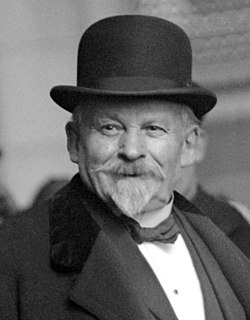A Quote by F. Sionil Jose
We are shallow because we have become enslaved by gross materialism, the glitter of gold and its equivalents, for which reason we think that only the material goods of this earth can satisfy us and we must therefore grab as much as can while we are able.
Related Quotes
Striving for longevity through versatility facilitates what we might call an ecological or true materialism. ... we are not truly materialist because we fail to invest deep or sacred meanings in material goods. Instead, our materialism connotes an unbounded desire to acquire followed by a throwaway mentality. True materialism could become part of a new ecological consciousness.
I was lucky enough to have had great success early on in life; to have had all the things the material world can offer. And yet, I realized that what I had actually neglected was the more spiritual side of myself, which has always been there. But it's easy for us in our culture to become consumed in a sense by materialism. Now materialism is fine. We live in a material world. I'm not saying that beautiful things don't enhance our lives. But, in our culture, we're never happy.
We, however, want to become those we are--human beings who are new, unique, incomparable, who give themselves laws, who create themselves. To that end we must become the best learners and discoverers of everything that is lawful and necessary in the world: we must become physicists in order to be able to be creators in this sense--while hitherto all valuations and ideals have been based on ignorance of physics or were constructed so as to contradict it. Therefore: long live physics! And even more so that which compels us to turn to physics--our honesty!
I learned to glitter the pumpkins for Halloween not because I went into it thinking, 'I'm going to glitter some pumpkins!' No. I bought all of these big, cold, slimy, disgusting pumpkins and tried to carve them, and it was gross, so I had to find something else to do with them. Glitter was life-changing.
What is the idea of God in heaven? Materialism. The Vedantic idea is the infinite principle of God embodied in every one of us. God sitting up on a cloud! Think of the utter blasphemy of it! It is materialism - downright materialism. When babies think this way, it may be all right, but when grown - up men try to teach such things, it is downright disgusting - that is what it is. It is all matter, all body idea, the gross idea, the sense idea. Every bit of it is clay and nothing but clay. Is that religion?
Evolutionists ... have a prior commitment, a commitment to materialism. It is not that the methods and institutions of science somehow compel us to accept a material explanation of the phenomenal world, but, on the contrary, that we are forced by our a priori adherence to material causes to create an apparatus of investigation and a set of concepts that produce material explanations, no matter how counter-intuitive, no matter how mystifying to the uninitiated. Moreover, that materialism is absolute, for we cannot allow a Divine Foot in the door.
How can we satisfy ourselves without going on in infinitum? And, after all, what satisfaction is there in that infinite progression? Let us remember the story of the Indian philosopher and his elephant. It was never more applicable than to the present subject. If the material world rests upon a similar ideal world, this ideal world must rest upon some other; and so on, without end. It were better, therefore, never to look beyond the present material world.
We must not cast away riches which can benefit our neighbor. Possessions were made to be possessed; goods are called goods because they do good, and they have been provided by God for the good of men: they are at hand and serve as the material, the instruments for a good use in the hand of him who knows how to use them.
Ectoplasmic plane? What the devil is that? (Simone) It’s jargon from those of us who are corporeally challenged. It’s the great beyond where we bounce into each other like floundering atoms. It’s really kind of gross – which is why I hang out with you. But only because you’re less gross than they are. (Jesse)
To each, therefore, must be given his own share of goods, and the distribution of created goods, which, as every discerning person knows, is laboring today under the gravest evils due to the huge disparity between the few exceedingly rich and the unnumbered propertyless, must be effectively called back to and brought into conformity with the norms of the common good, that is, social justice.
Some authors write nonsense in a clear style, and others sense in an obscure one; some can reason without being able to persuade, others can persuade without being able to reason; some dive so deep that they descend into darkness, and others soar so high that they give us no light; and some, in a vain attempt to be cutting and dry, give us only that which is cut and dried. We should labor, therefore, to treat with ease of things that are difficult; with familiarity, of things that are novel; and with perspicuity, of things that are profound.





































